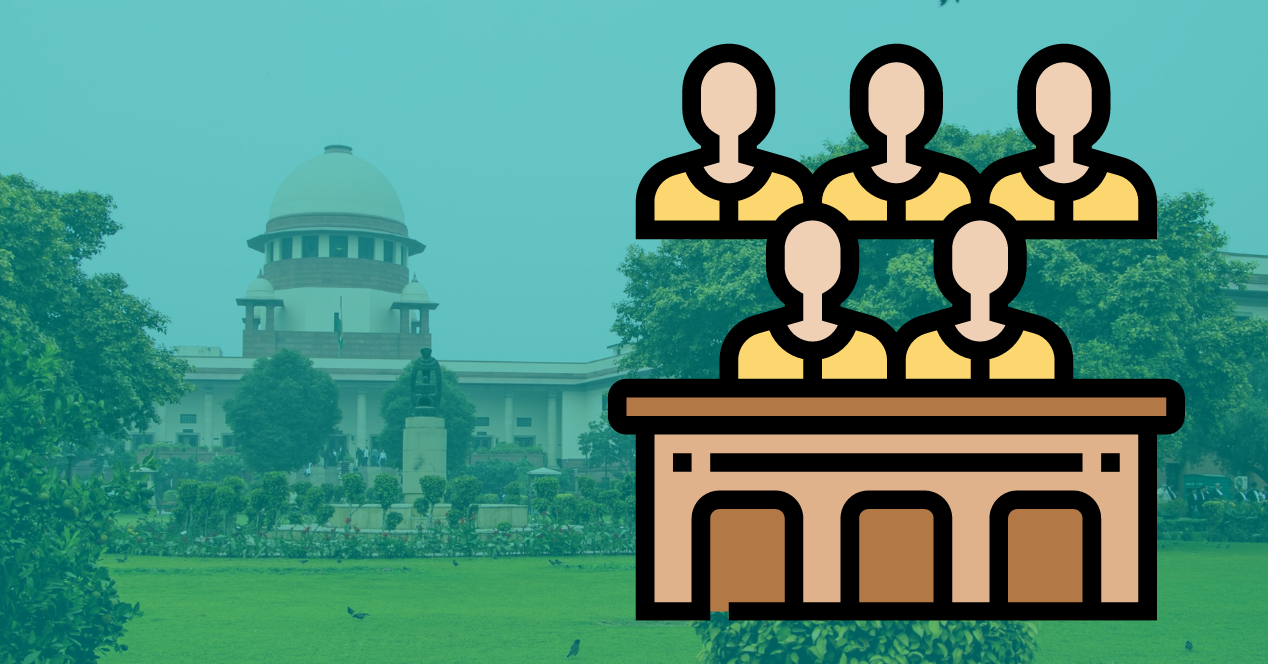Analysis
Supreme Court hears challenge against appointment of 68 judicial officers in Gujarat
Petitioners argue that the Gujarat High Court favoured the seniority of judicial officers, and not their merits

Today, the Supreme Court heard petitions challenging the appointment of 68 judicial officers in Gujarat. The petitioners had filed a writ petition, contending that the Gujarat High Court appointed these officers based on seniority rather than merit.
Senior Advocate R. Basanth represented the petitioners, while Senior Advocate V. Giri argued on behalf of the Gujarat High Court. Senior Advocates Dushyant Dave and Meenakshi Arora also represented some of the appointed officers.
Basanth: Gujarat High Court ignored merit
Basanth argued that two petitioners he represented scored 142 and 134.5 marks out of 200, in the suitability test for the appointment of District Judges. The appointment is determined on the “merit-cum-seniority.” Senior Civil Judges need a minimum two year experience to be appointed in the District Judiciary as per Rule 5 (3) of the Gujarat State Judicial Rules, 2005. The Gujarat High Court identified 205 senior civil judges who fit the criteria, Basanth submitted.
Basanth stated that the petitioners were higher in the merit list and fit to be promoted. However, the Gujarat High Court deviated from this merit-based approach and instead appointed 68 judicial officers solely based on seniority. This shift, according to Basanth, essentially reversed the appointment process from one based on merit-cum-seniority to seniority-cum-merit, contrary to principles established in All India Judges Association v Union of India (2002).
He expressed dismay that the 68th officer who was appointed had scored only 100 marks. Basanth lamented this situation, stating, “Those below us march over us only on the basis of seniority.”
Giri: 68 officers were found to be meritorious
Giri pointed out that the written test is not the only criteria for appointing judicial officers. He stated that the assessment considered other factors such as Annual Confidential Reports, annual disposals, and judgments delivered. Giri mentioned that from the pool of 205 candidates, 175 were shortlisted based on these multifaceted criteria. Out of this group, the 68 seniormost officers were selected for appointment. According to Giri, these appointees were deemed “otherwise meritorious.”
Chief Justice D.Y. Chandrachud pointed out that seniority was provided by “far lesser weight.” He suggested that candidates who met the threshold of seniority, namely possessing a minimum of two years’ experience as a judge, should have been evaluated primarily on their merits. He asked, “Does merit then not assume a subsidiary importance over seniority?”
Dave: All High Courts across India follow this practice
Dave pointed out that the current mode of appointment of district judges has been followed by the Gujarat High Court since 2011. He argued that most High Courts across India, with the exceptions of Jharkhand and Calcutta, practised this. According to Dave, such a longstanding practice should not be disrupted. He contended that a High Court is the “ultimate master” when in matters of the district judges.
Dave claimed that the petitioners are seeking a promotion only on the basis of merit, which is a specific mode of “direct recruitment” where a written test and viva voice is conducted. He clarified that promotion under the suitability test operates independently from direct recruitment, focusing solely on merit.
Arguments are expected to conclude on 15 April 2024. CJI Chandrachud remarked that “merit-cum-seniority” is not a statutory term, but rather a concept that needs to be interpreted based on the requirements of the district judiciary. This decision is likely to impact the “merit-cum-seniority ” mode of recruitment of district judges currently adopted across the country.




